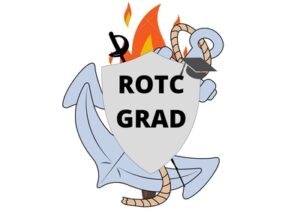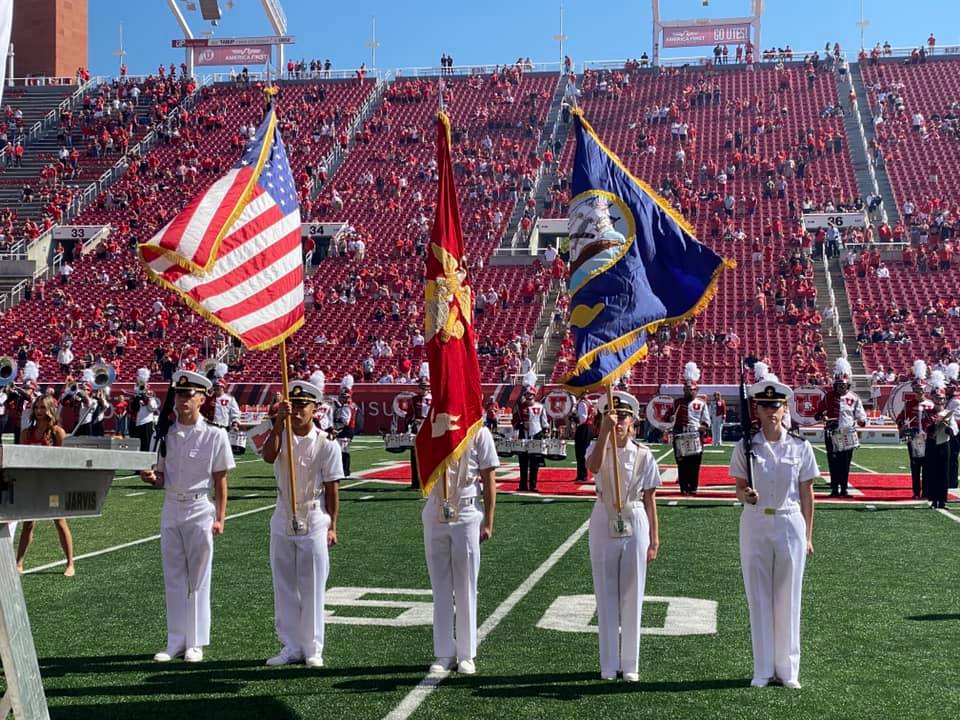
Introduction
When I was applying for the program my senior year of high school, I knew that I wanted to be in the Marine Corps and also be an officer after going to college. I was never formally introduced to NROTC, as it was something I discovered through an officer recruiter in a Marine uniform.
By the end of this article, you have a thorough understanding of what the differences are in the program between Navy and record, as well as the similarities.
So what is the difference between Marine and Navy ROTC?
While aspiring officers in each branch attend the same reserve unit and participate in the same weekly trainings, Marine Options can choose any major not on the tier list. However they also have to pass 6 week Officer Candidate School (OCS) their junior year. Navy midshipman do not attend any formal boot camp environment but often have a more demanding course load.
The rest of this article is a more comprehensive list of the differences and similarities explained. If you have any further questions or comments feel free to reach out to me at do youculture@gmail.com and I’ll do my best to respond.
Marine options can choose any major
The Marine Corps values education and those who can graduate college with any degree. The Navy cares that you have a major specific to the naval demands of sea life. Declaring majors in your senior year of high school during the application process such as oceanography, mechanical engineering, physics, computer science, and calculus will make you more competitive for the scholarship. It’s also challenging to change your major once you’re in the NRTC program if you are a Navy option. The Navy has a tier list of majors and you can only choose a major that’s on the list.
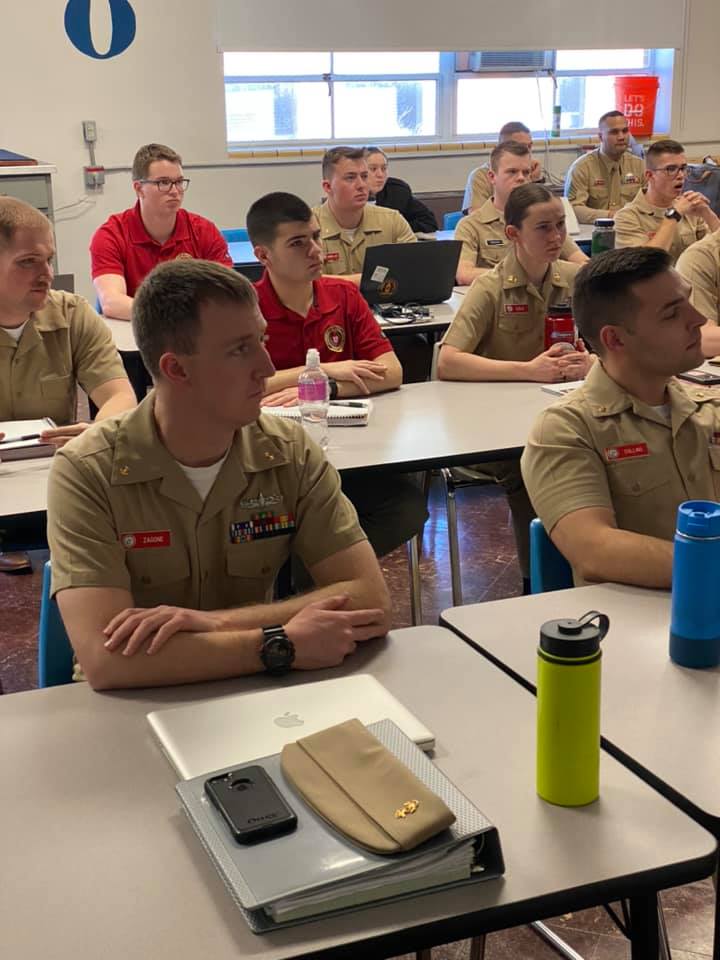
As mentioned earlier, the Marine Corps just cares that you have a degree in any field. A lot of my Marine friends studied psychology, geography, business, political science, history and peace in conflict studies. We even had someone that was a dance major.
At my unit, the Navy was more strict on the minimum GPA standard you could have. On the marina option sign, we had to have a GPA above a 2.8 which I believe is the national standard. However, if you go below that, most units will put you on mandatory study hours to ensure you don’t end up failing a class and become ineligible to go to OCS.
Only Marine Option Midshipman Train and Attend OCS
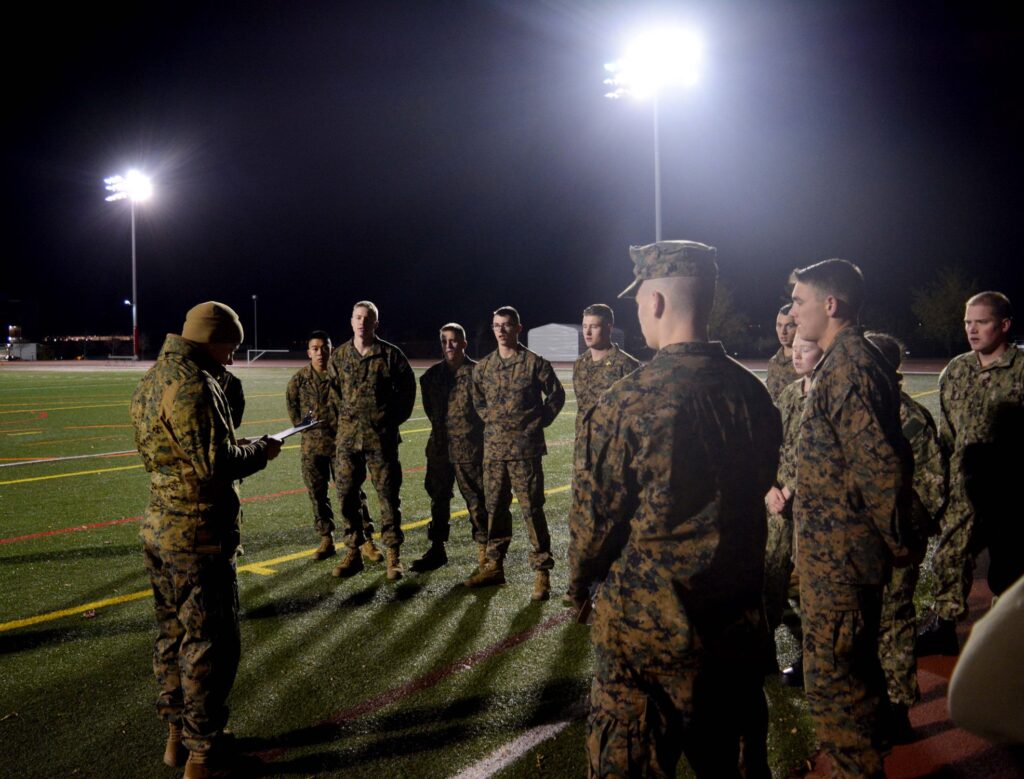
Marine options attend the six week OCS increment going into their senior year of college. Usually Marine options will go to OCS during the first half or second half of the summer before that year. Navy options will not attend any type of formal Boot Camp, however, both members in each branch attended summer training events each summer that range from a few weeks to up to a month. The Navy has started to implement some challenging courses such as sea trials, A 10 day event The teachers Midshipman boat drills and maritime fundamentals in a controlled and challenging environment. There’s a little bit of yelling and screaming involved, but it is not meant to be a Boot Camp environment with high attrition.
As a Marine Option, you will receive classes on how to prepare and train for OCS every Friday morning for a couple hours. These classes will not interfere with your traditional college classes. During this time, your conduct OCS workout circuit with your instructors, and receive classes on Marine Corps concepts. These are definitely the most useful classes and I have no doubt that’s what made me successful at OCS.
Both Navy and Marine Midshipman Conduct Drill
Most units will conduct drill using rifles and a color guard Thursday mornings before classes start. It’s meant to teach discipline and the unit cohesion, but it also becomes wearing to train drill a couple times a week in addition to other NROTC responsibilities. My unit trained and competed in an annual drill competition each Spring semester.
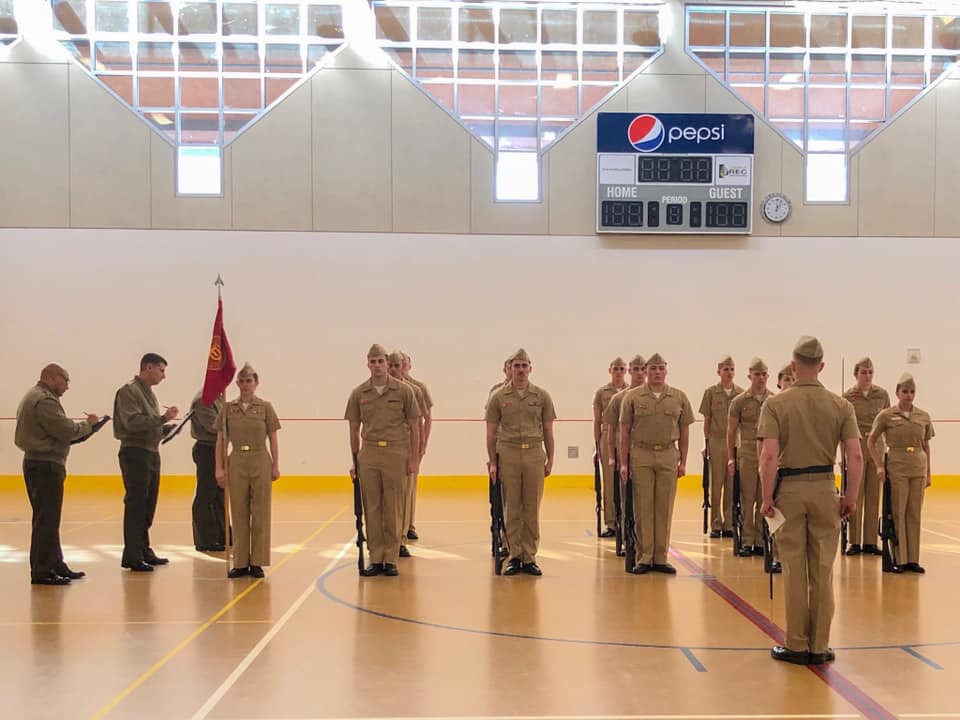
Your unit will issue you rifles and all the gear you need each morning. I will also be taught by in the Marine drill instructor that every unit will have. They are also referred to as AMOIs, or assistant Marine officer instructor.
Our unit usually funded a giant bus for us to utilize as we travel to nearby colleges. We competed in drill competitions in Washington and Oregon during the time that I was there. Our unit hosted a local trail competition one year as well.
While most of your reserve unit will be made up of Navy personnel, as a Marine option attending OCS his junior year, it was awesome to have three years of drill under my belt before showing up (you do a lot of Drill at OCS).
As a navy option, you’ll find these events to actually be really inconvenient. All the Navy guys had way harder majors than the Marine options so getting up early to do drill for an hour or a couple times a week added more to their plate that they didn’t need.
They do the same labs and unit workouts
Every Thursday usually from 3 to 5 PM, the entire unit needs to conduct officer and leader ship training. These lab events can range from a variety of topics and trainings. Most of them consist of guest speakers from each community in the Navy or Marine Corps to give a better understanding of what jobs are available. Other times we would learn about close quarters battle, combat casualty care, submarine capabilities, etc.
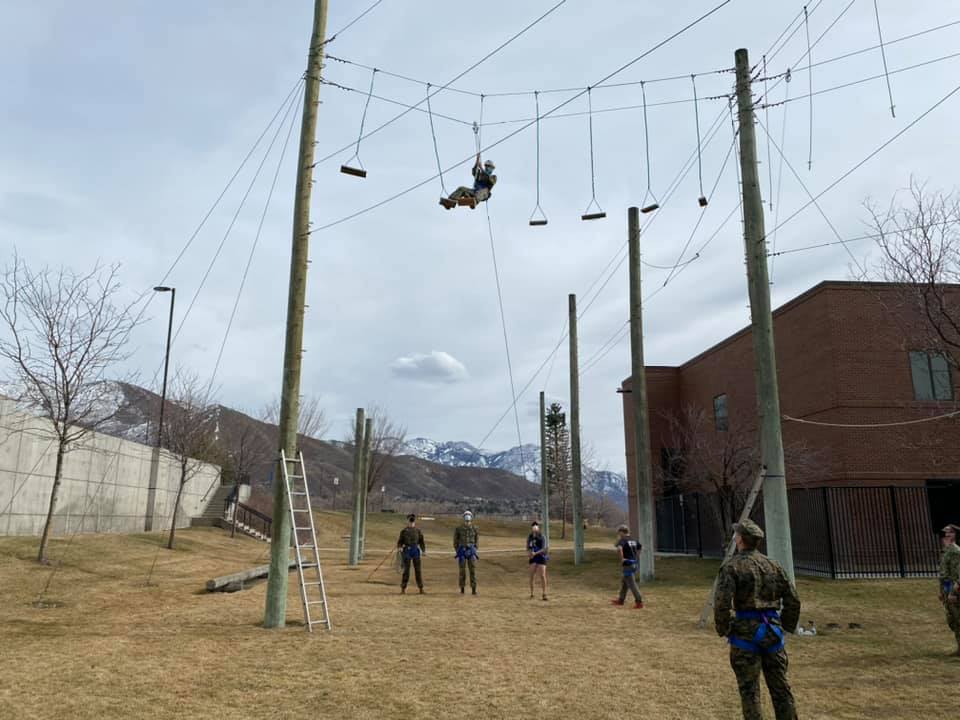
This is one of the only two times we meet as an entire unit each week, so it actually boosts morale to have everyone around despite busy college schedules.
The other only unit event during the week is the Monday morning group work out. This is run by another college Midshipman to give him or her leader ship experience. A lot of these workouts involve team competitions and calisthenics exercises at the unit.
Once every few months, the unit will conduct a Navy or Marine Corps physical fitness test with defined standards.
Conclusion
Marine and Navy ROTC entails a lot of the same responsibilities and roles during your time in the program. It varies significantly in the sense that Marine officers are training for Officer candidate school ( OCS) and prioritizing leader ship development as well as physical and mental resilience. Navy options focus intensely on their major and applying for the specific job they want in the Navy before they graduate.
If you’ve been doing some research on the NROTC program, you’ll notice that there’s no such thing as Marine ROTC as a standalone program. This is because the Marine Corps falls under the department of the Navy
Thanks for reading! As mentioned earlier, feel free to reach out on the contact I provided for more questions or comments. Until then stay tune for the next article.
